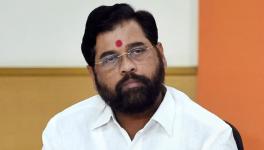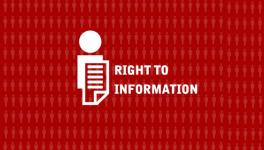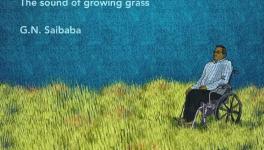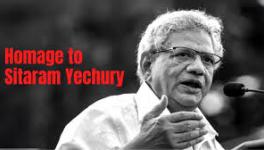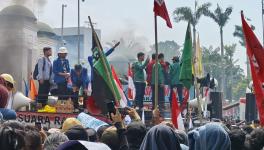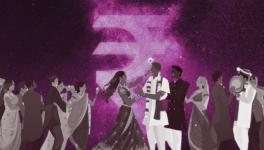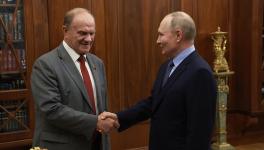South Koreans Prepare to Vote for 'Least Unpopular' Presidential Candidate
The election campaign has 'degenerated into allegations of corruption and name-calling'
South Koreans are set to vote in the nation's presidential election on Wednesday, the culmination of a vicious campaign between the two leading candidates that has created deep rifts in society.
And warnings abound that whoever emerges victorious will be confronted with a host of pressing political problems made worse by this deeply divided public.
The two frontrunners eyeing the presidency, which is presently held by Moon Jae-in, both held last-minute rallies in central Seoul on Tuesday.
Lee Jae-myung, the candidate for the ruling Democratic Party, spent the last few hours touring the city to encourage residents of the capital to back his campaign before a final address at the Chunggye Stream.
His People Power Party rival, Yoon Seok-youl, was similarly making final appeals to the electorate and was scheduled to speak to supporters Tuesday night in front of Seoul City Hall. By law, all campaigning must halt at midnight.
Neck-and-neck in the polls
The final public opinion polls were conducted at the weekend and most gave Yoon a narrow lead over Lee, although analysts point out that most polls only put him ahead by a couple of percentage points and have a predicted margin of error of up to 3%.
That effectively makes the election too close to call and the first solid indicators of which candidate is in the lead will only become apparent when the initial results are announced in the early hours of Thursday.
Lee Jae-myung (R), the candidate for the ruling Democratic Party, and Yoon Suk-yeol (L), from the People Power Party, are the frontrunners for the post of president
And while the nation has been assailed by political challenges throughout Moon's five-year administration — ranging from the security threat posed by a belligerent North Korea to a response to the coronavirus pandemic that has been criticized in some quarters, and economic problems as well as geopolitical differences with neighbors Japan and China — those issues have largely been ignored by the candidates.
Instead of substantive discussions over issues that affect the lives of ordinary members of the public, the campaign has degenerated into allegations of corruption and name-calling, said Hyobin Lee, an adjunct professor of Korean politics at Chungnam National University.
"The policy debates are gone and the candidates just criticized each other for reasons such as the misbehavior of the other candidate's wife or his son," she said. "Personally, I am worried about issues of inequality, such as welfare assistance, unemployment and the redistribution of wealth, although the candidates do not care much," she told DW.
The different political camps have labeled rival party leaders "beast" and "parasite," with the hint of violence never far below the surface.
On Monday, that violence boiled over, with a man in his 70s attacking Song Young-gil, the chairman of the Democratic Party, with a hammer as he met voters on a street in Seoul. Song was treated at a nearby hospital while his assailant, who was caught by television cameras shouting slogans against the US and South Korea carrying out joint military exercises, was arrested.
Polarization and frustration
The public is polarized in its opinions, but also frustrated that there have been so few genuine debates on policies and the future of the nation, said Park Saing-in, an economist at Seoul National University.
"It is deeply unfortunate, but the most important issue in this election is who an individual voter dislikes the least," he told DW. "For me, it is dangerous when people vote based on allegations that are reported in the media or scandals discussed on social media.
"There has been no serious debate of the important issues, and whoever wins later this week will have to lead a very divided country," he underlined.
For Park, the most pressing issues for the government include the inequality that continues to plague South Korean society, a low birth rate that has serious implications for the very survival of the nation and an economy that has been badly bruised by the impact of the coronavirus pandemic and, now, the war in Ukraine.
Lee's manifesto has promised lavish cash handouts for companies still struggling as a result of the pandemic and as a move towards his goal of a system of universal basic income. Yoon, on the other hand, has proposed more targeted economic stimulus measures due to concern over the nation's ballooning debt.
Lee has vowed to continue Moon's efforts to reach out to North Korea through offers of assistance, along with balancing relations with Beijing and Washington so as not to antagonize the nation's most important trading partner, China, and its closest security ally, the US.
Yoon, however, has reiterated his commitment to close ties with the US and has vowed to stand up to China and ensure "peace through strength" when dealing with North Korea.
The least unpopular candidate wins
Lee, the adjunct professor of Korean politics at Chungnam National University, noted that the victor is likely to be the least unpopular candidate.
A strong supporter of Moon's administration, Lee says she is underwhelmed by his anointed successor in the Democratic Party, but says she has little choice but to support him.
She fears that Yoon will win after he struck a late deal with the head of another conservative party to amalgamate their campaigns.
"If Yoon becomes president, democracy will be in danger," Lee said. "He will stick to traditional energy policies, not green energy, and pro-business policies instead of those favorable to laborers — just like Donald Trump did in the US," she pointed out.
"Another issue is gender conflict as Yoon wants to get rid of the Ministry of Women and the Family," she stressed. "That is one reason why younger voters support him but as a woman, I experience discrimination in many ways — in the job market, promotion, human relationships, and so on."
Edited by: Srinivas Mazumdaru
Get the latest reports & analysis with people's perspective on Protests, movements & deep analytical videos, discussions of the current affairs in your Telegram app. Subscribe to NewsClick's Telegram channel & get Real-Time updates on stories, as they get published on our website.












